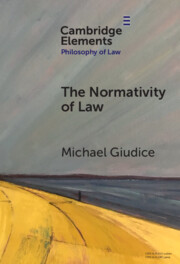The Normativity of Law
In the philosophy of law there has been a proliferation of advanced work in the last thirty years on the normativity of law. Recent theories explore law's character as a special kind of convention, shared cooperative activity, and social artifact, among other perspectives, to explain the precise way in which law provides subjects with reasons for action. Yet, for all their sophistication, such accounts fail to deliver on their promise, which is to establish how law creates more than just legal reasons for action. This Element aims to survey these views and others, situate them in a broader context of theories about the nature of law, and subsequently suggest a path forward based on the methodological continuity between analytical, evaluative, and empirical approaches to law's normativity.
- al philosophy
Product details
December 2024Hardback
9781009571425
78 pages
229 × 152 × 6 mm
0.249kg
Available
Table of Contents
- Introduction
- 1. Natural law theory: law's moral significance
- 2. Early and classical legal positivism: Hobbes, Bentham, Austin
- 3. Twentieth century positivism: Kelsen and Hart
- 4. Twentieth century positivism: Raz
- 5. Third theories of law
- 6. Social facts and normativity
- 7. Coercion and normativity
- 8. Observations and lessons
- 9. Future directions
- Conclusion
- References.







